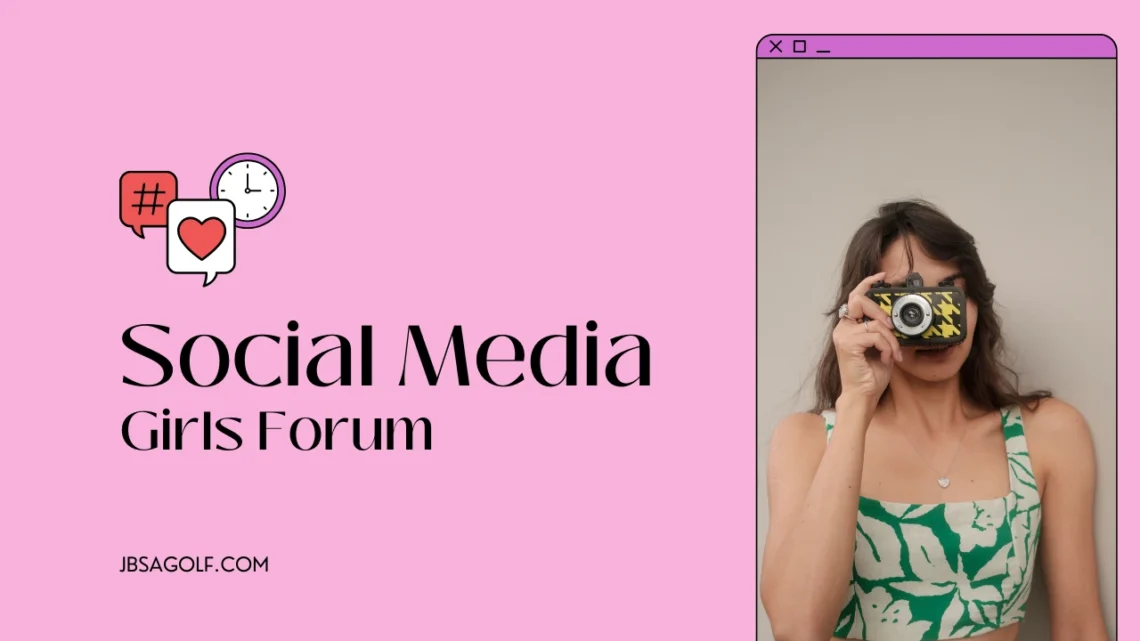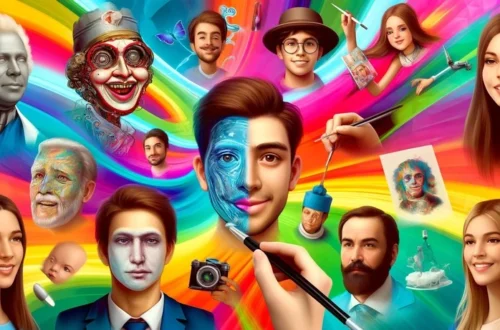Introduction to social media girls forum
In the ever-evolving landscape of the internet, social media girls forum have carved out a unique and thriving niche. These are digital communities primarily centered around discussions about — and often by — women who are active on social media platforms like Instagram, TikTok, YouTube, and more. Whether it’s influencers, lifestyle creators, beauty vloggers, or fitness coaches, these forums are places where users discuss, critique, and sometimes even dissect every aspect of these public personas.
At their core, these forums blend pop culture commentary with online community building. While some corners may come off as gossip-driven or controversial, many are also filled with thoughtful insights, discussions on social media ethics, and explorations of influencer marketing. Essentially, they’re a mirror to the way our generation engages with digital fame, curated identities, and online feminism.
So, what drives the popularity of these forums? Who participates in them? And why are they sometimes seen as both empowering and problematic? Let’s unpack all of that — and more.
The Rise of Influencer Culture and Online Communities
To understand social media girls forums, we first need to understand the rise of influencer culture. Over the last decade, the way we consume content has shifted dramatically. Traditional celebrities still exist, but influencers — everyday people who gained popularity through relatability and niche content — now dominate timelines.
With the rise of this new wave of digital stardom came a new kind of audience: one that is both highly engaged and deeply analytical. Unlike passive TV watchers, social media users follow influencers in real-time, watching their stories unfold daily, from morning routines to major life milestones.
Social media girls forums emerged as digital coffee shops where users could gather to share thoughts on these influencers. These communities started out small — Reddit threads, blog comment sections, or niche boards — but quickly grew into large-scale platforms with thousands of active users. Some forums, like Guru Gossip or Tattle Life, became infamous for their focus on influencer behavior, dissecting content and calling out inconsistencies in brand messaging, authenticity, or even personal ethics.
What’s interesting is how participatory this culture has become. Members often engage in detective-like work: cross-referencing timelines, analyzing captions, or spotting sponsored content that isn’t properly disclosed. While this can sound intense, it also speaks volumes about the collective media literacy of modern internet users.

The Appeal: Why People Join These Forums
People join social media girls forum for all kinds of reasons. Some are fans who want a space to talk about their favorite content creators. Others are critical viewers who want to discuss patterns of problematic behavior. And many are just curious observers, looking for behind-the-scenes insights into the world of social media fame.
One of the biggest appeals of these forums is their unfiltered conversation. On most social media platforms, discussions are moderated by either algorithms or community standards. Criticism — even valid — can be quickly deleted, reported, or drowned out by fans. Forums, on the other hand, offer a more open environment where users can speak candidly, share opinions, and ask controversial questions without fear of being blocked or banned.
There’s also a sense of community that develops. Frequent posters recognize each other’s usernames, inside jokes are formed, and certain threads become go-to places for regular commentary. For many users, especially women, these forums become a place to not only talk about influencers but also to vent about societal pressures, beauty standards, motherhood expectations, or even personal struggles — all through the lens of social media content.
It’s a mix of entertainment, education, and emotional release — all rolled into one.
The Controversy: Empowerment or Toxicity?
Of course, social media girls forums are not without their critics. Many argue that they contribute to online bullying, targeted harassment, or unnecessary scrutiny. Influencers themselves often speak out against these communities, claiming they feel violated, misunderstood, or unfairly judged.
So, is it fair to criticize someone just because they’re online? This is where the debate gets tricky.
Some users argue that once someone monetizes their personal life, they open themselves up to critique. After all, influencers are effectively selling their lifestyle as a product — so shouldn’t it be okay for consumers to review or comment on it? Others argue that these discussions can become obsessive, bordering on invasive, especially when they involve personal attacks or speculation about private matters like relationships or finances.
That said, not all forums are toxic. Many threads are surprisingly respectful, filled with thoughtful critiques that focus more on media literacy than personal jabs. Users might discuss how a beauty influencer promotes unrealistic skincare results, or whether a family vlogger is oversharing their children’s lives for views.
At their best, these forums can act as watchdogs — pushing influencers to be more transparent, honest, and ethical in their content. At their worst, they can cross the line into cyberbullying. Like most things on the internet, it all depends on the intent and tone.
The Role of Anonymity and Internet Psychology
One of the more fascinating aspects of social media girls forums is the role anonymity plays. Most users post under pseudonyms or throwaway accounts, giving them the freedom to speak candidly — but also shielding them from accountability.
This anonymity can embolden people to say things they wouldn’t say publicly. It creates a duality where someone might be kind and supportive on Instagram, but snarky and critical on a forum. That contrast can be jarring — and raises important questions about how we present ourselves online.
Psychologists often compare this behavior to the “online disinhibition effect,” where people act differently when they feel untraceable. In the context of social media forums, it can lead to both honesty and cruelty, support and shaming — all existing within the same digital space.
It’s worth reflecting on why people feel the need to hide their identities to speak their truth. Is it because the platforms themselves are too restrictive? Or because society hasn’t found a healthy way to balance criticism with compassion?
Ethical Questions and the Future of These Forums
As influencer culture continues to grow, the presence of social media girls forums isn’t going away anytime soon. In fact, they may become even more influential. However, they also bring up important ethical considerations.
For instance, how do we balance free speech with responsible discourse? Should there be clearer boundaries between public and private life online? And are we, as users, holding ourselves to the same standards we expect from influencers?
Some forums have started moderating more actively, banning doxxing, speculative gossip, or posts that cross personal boundaries. Others are even collaborating with media researchers to better understand how these spaces affect public perception and digital behavior.
There’s also a growing conversation around media literacy. More users are asking: What are we really consuming? Why do we believe what we see online? And how can we be more critical — without being cruel?
These questions signal a maturing internet culture, one that’s moving beyond blind fandom or toxic criticism toward a more nuanced engagement with digital content.
Conclusion:
In the end, social media girls forums reflect something bigger than influencer culture — they mirror how we relate to each other in the digital age. They show our hunger for connection, our curiosity about authenticity, and our struggle to make sense of curated online lives.
They can be both a space for insight and a breeding ground for negativity. But they are undeniably important, especially as social media continues to shape the way we think, feel, and interact.
Whether you love them or hate them, these forums are part of the cultural fabric now. And as long as influencers exist, people will keep talking about them — somewhere between admiration and accountability, humor and harshness, community and criticism.
So the next time you scroll through a perfectly curated feed, remember: there’s likely a whole conversation happening elsewhere, with users pulling back the curtain, asking tough questions, and trying to make sense of it all. That’s the world of social media girls forums — complex, candid, and undeniably human.





